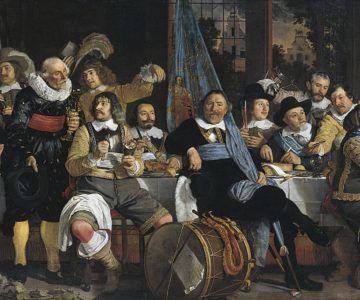Ralph Leonard in Unherd:
 “Forward! Brave people! The goddess of liberty leads you on!” So declares Count Egmont, the protagonist in Goethe’s exquisite 1788 play, Egmont, a tragedy based on the Dutch revolt of the late 16th century. “And as the sea breaks through and destroys the barriers that would oppose its fury, so do ye overwhelm the bulwark of tyranny, and with your impetuous flood sweep it away from the land which it usurps.”
“Forward! Brave people! The goddess of liberty leads you on!” So declares Count Egmont, the protagonist in Goethe’s exquisite 1788 play, Egmont, a tragedy based on the Dutch revolt of the late 16th century. “And as the sea breaks through and destroys the barriers that would oppose its fury, so do ye overwhelm the bulwark of tyranny, and with your impetuous flood sweep it away from the land which it usurps.”
Egmont would become a martyr representing the aspirations of the Dutch people, persecuted and oppressed for their Protestantism by the corrupt and tyrannical Duke of Alba, an agent of Phillip II and his Catholic Spanish empire. This was the first great “bourgeois revolution”, a concept that will be familiar to those acquainted with the Marxist and socialist lexicon, denoting the events and processes that facilitated the development of modern bourgeois society on the basis of the capitalist mode of production. The classic example was the French Revolution of 1789, when monarchy and seigneurialism were overthrown, and the basis of the modern liberal-democratic capitalist nation established.
In recent years, however, bourgeois revolution has gone out of fashion and subjected to revisionist critique wishing to consign it to the dustbin of history. Part of what underlines this dismissiveness is a rather childish unwillingness to credit capitalism, and by extension, the bourgeoisie and liberalism, with any positive contribution to human development.
More here.
